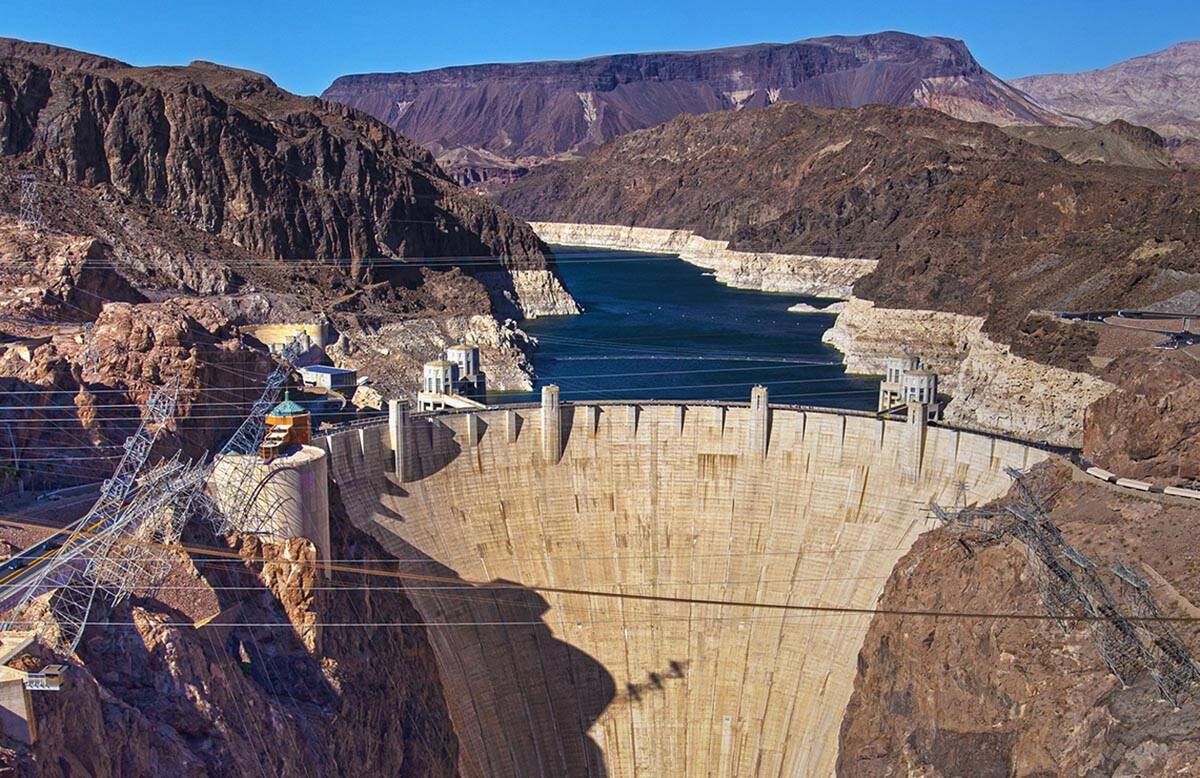NEVADA VIEWS: More education needed on region’s water facts
As temperatures rise and the levels at Lake Powell and Lake Mead decline, many residents are becoming increasingly frustrated by the perceived lack of action by our region’s water managers. While water consumption in the valley has declined in recent years due to measures taken by the Southern Nevada Water Authority and the Las Vegas Valley Water District, local businesses, institutions and homeowners. It’s time for a different focus to inform and educate the public about the reality of the region’s water crisis.
Since relocating to North Las Vegas nearly three years ago, I’ve watched with interest several water authority TV campaigns. One featured a Golden Knights player laying a tough “reality check” on a homeowner watering his lawn. Another featured a child actor from California sharing that water restrictions are “not kid’s stuff but the law.”
Then there’s the unappealing water drop character issuing fines for violating watering restrictions and spewing water on a passerby. Finally, we have the “water angel” turning her home irrigation system off on a restricted Sunday as she returns from a late night out not from church as her dad suspects.
Market research by the water authority suggests the public approves of these messages, and the region’s successful conservation results would support their conclusions.
But I suspect that comments sent to local TV stations and expressed on newscasts, numerous letters sent to publications and comments I’ve heard from locals and visiting friends suggest authority’s efforts, including the aforementioned commercials, appear to miss the mark in educating the public about the region’s water supply and quality issues.
I’d prefer to see more commercials that inform and educate such as a recent one featuring water supply and quality statistics and facts. For example, according to the water authority:
■ Sixty-two percent of water is consumed in residences.
■ About 99 percent of indoor household wastewater is captured, treated and returned to Lake Mead.
■ In 2021, Southern Nevadans used 110 gallons per capita per day, a 2-gallon reduction from 2020.
■ The most beneficial step to conservation is reduced outdoor water use.
■ Businesses use 18 percent of the area’s water supply.
■ Tourists consume 7 percent of the area’s water supply.
■ The Strip uses less than 1 percent of the state’s water supply.
■ The Bellagio water fountains use well water, not water from the Colorado River.
■ The decline in Lake Mead’s water level (150 feet since 2000, including 20 feet in May) is due to a severe drought of more than 20 years, not local consumption.
These messages, as well as details about the status and future options for water supply, should be key to the authority’s ongoing efforts and part of a public outreach/public engagement program. That should include in-person forums at which water authority officials present timely information to different sectors of the business community, nonprofit institutions and organizations such as environmental groups, faith-based institutions and others.
The support of an informed and engaged citizenry is vital to understanding the challenges concerning our water supply. We must entertain and implement different approaches to public outreach and engagement on the subject.
J. Paul Blake is the former communications and community relations director for Seattle Public Utilities.




























